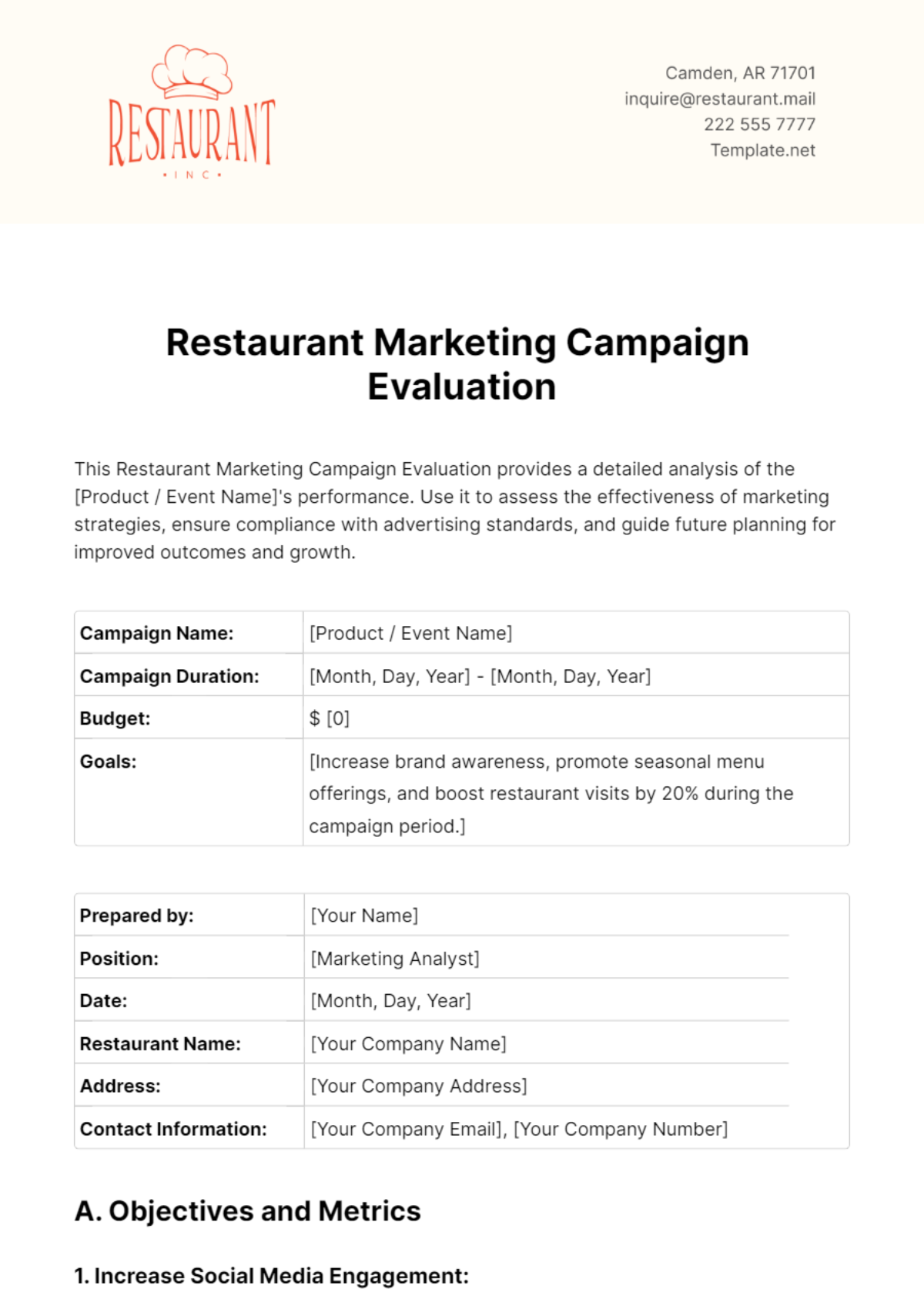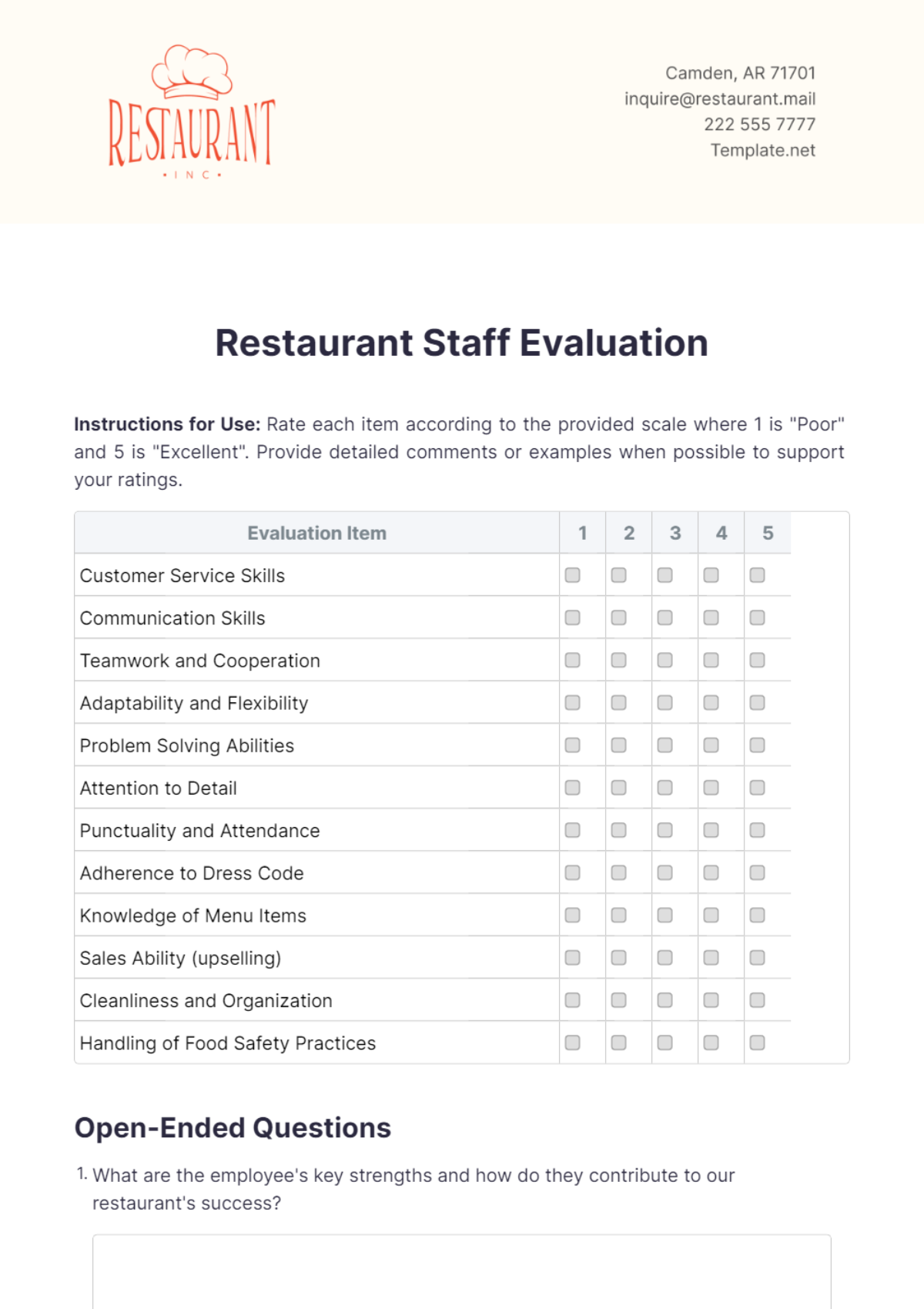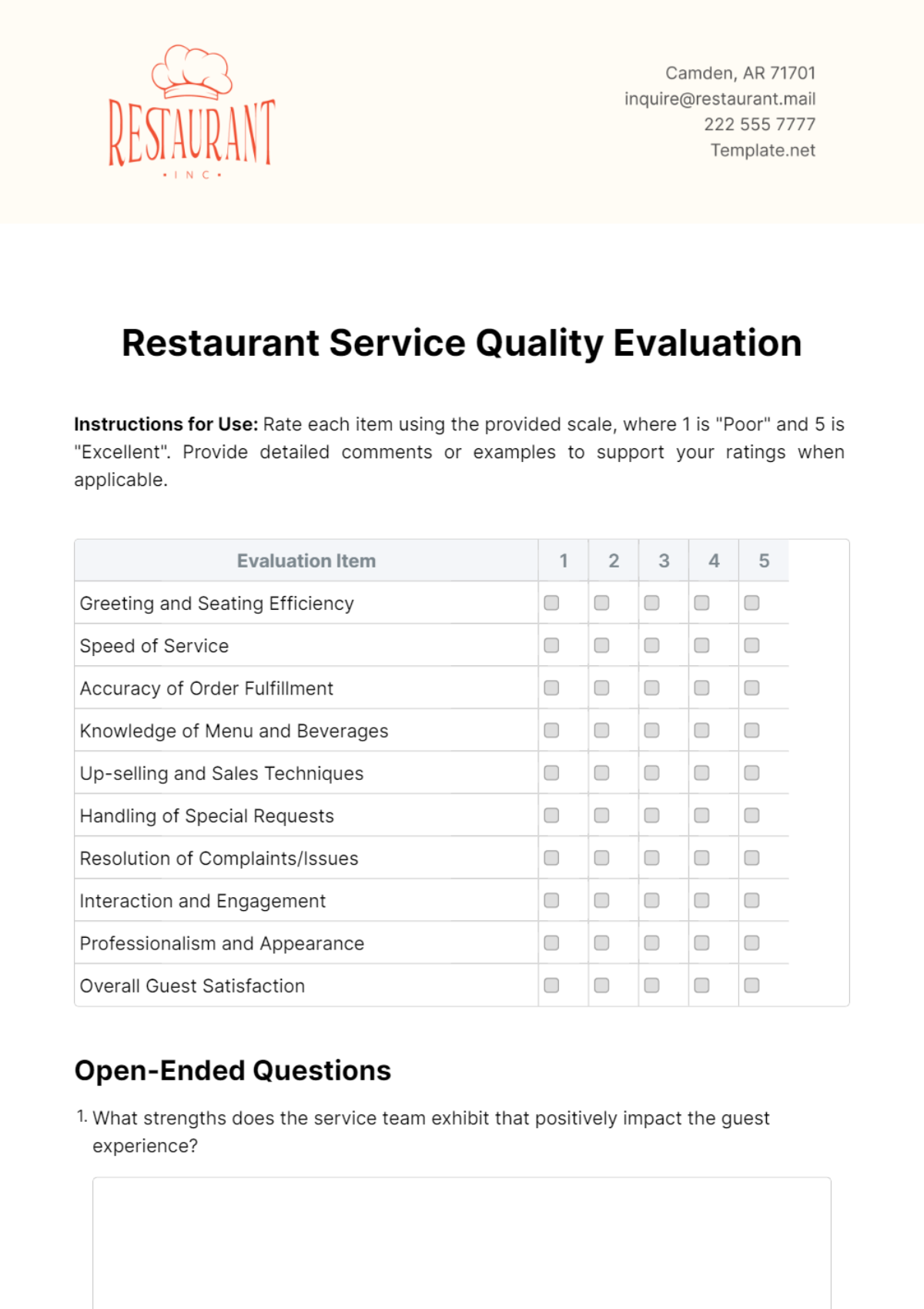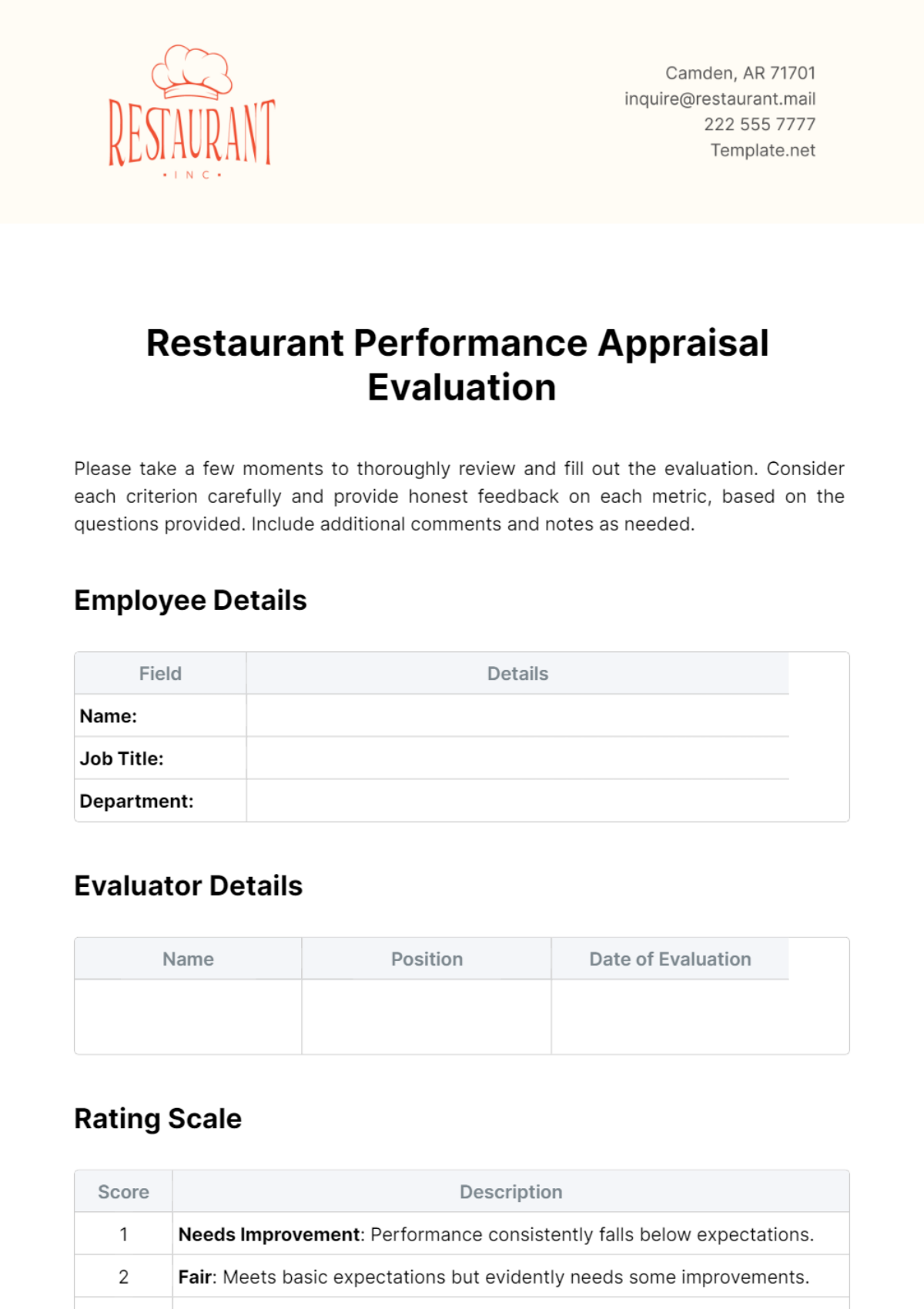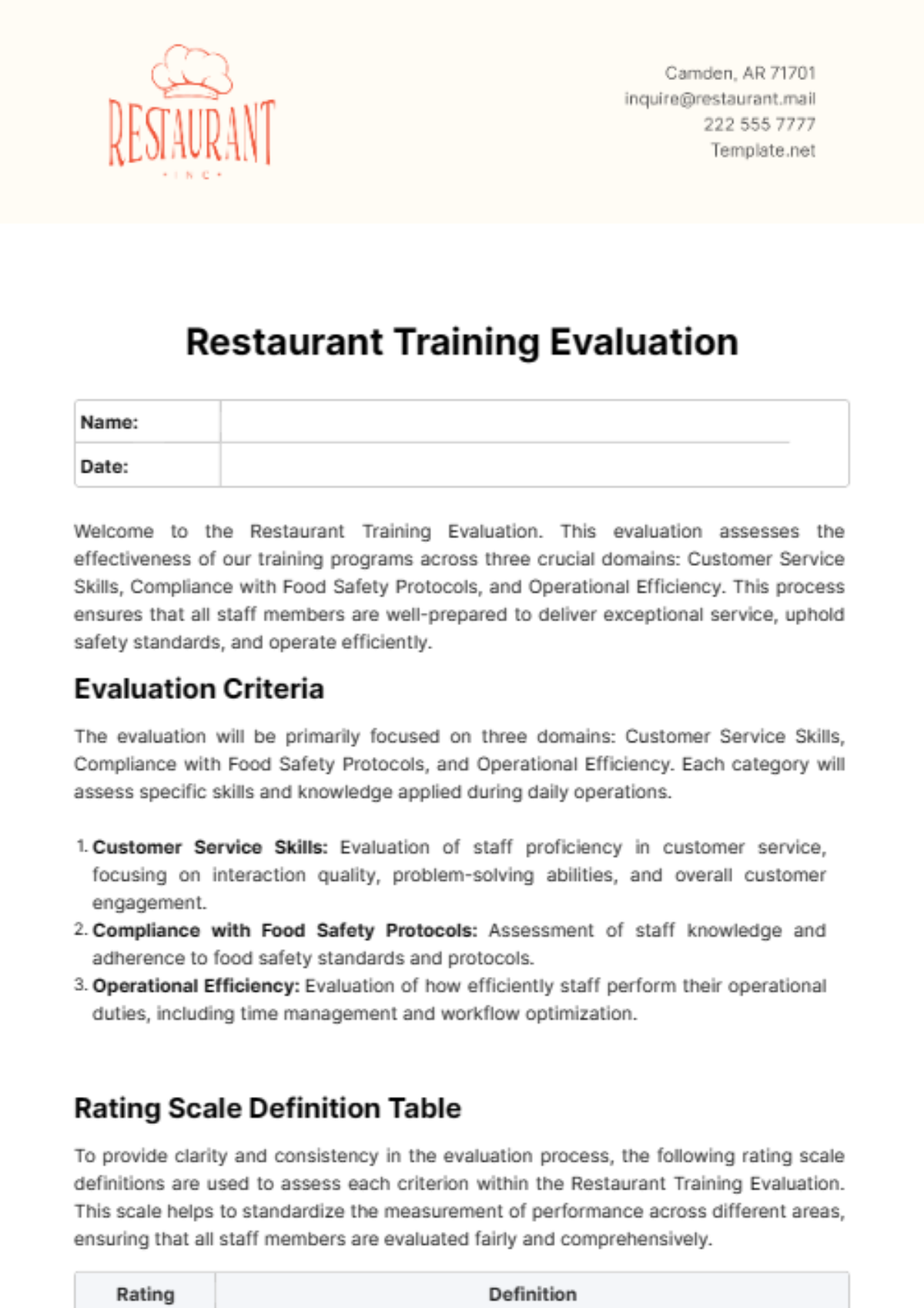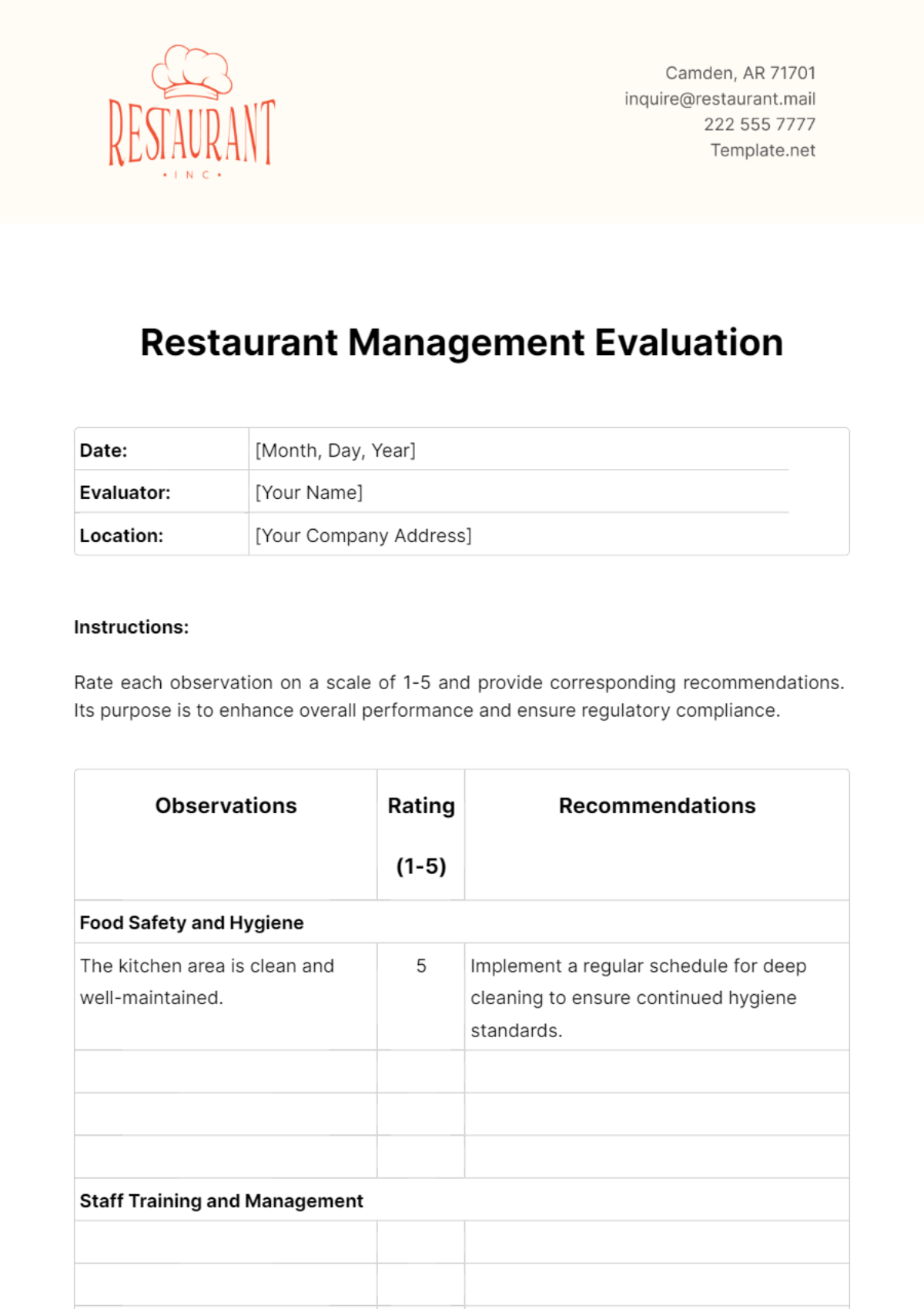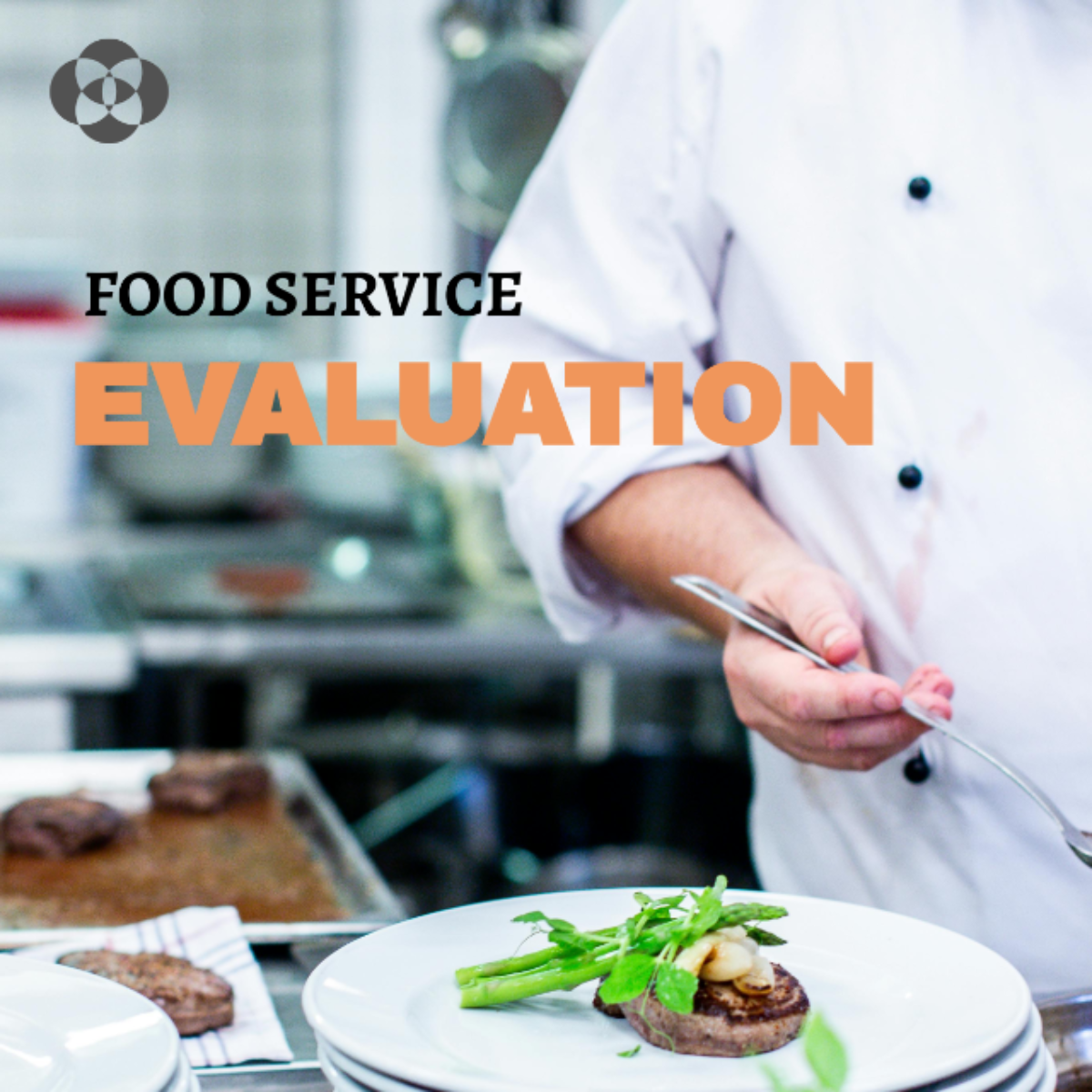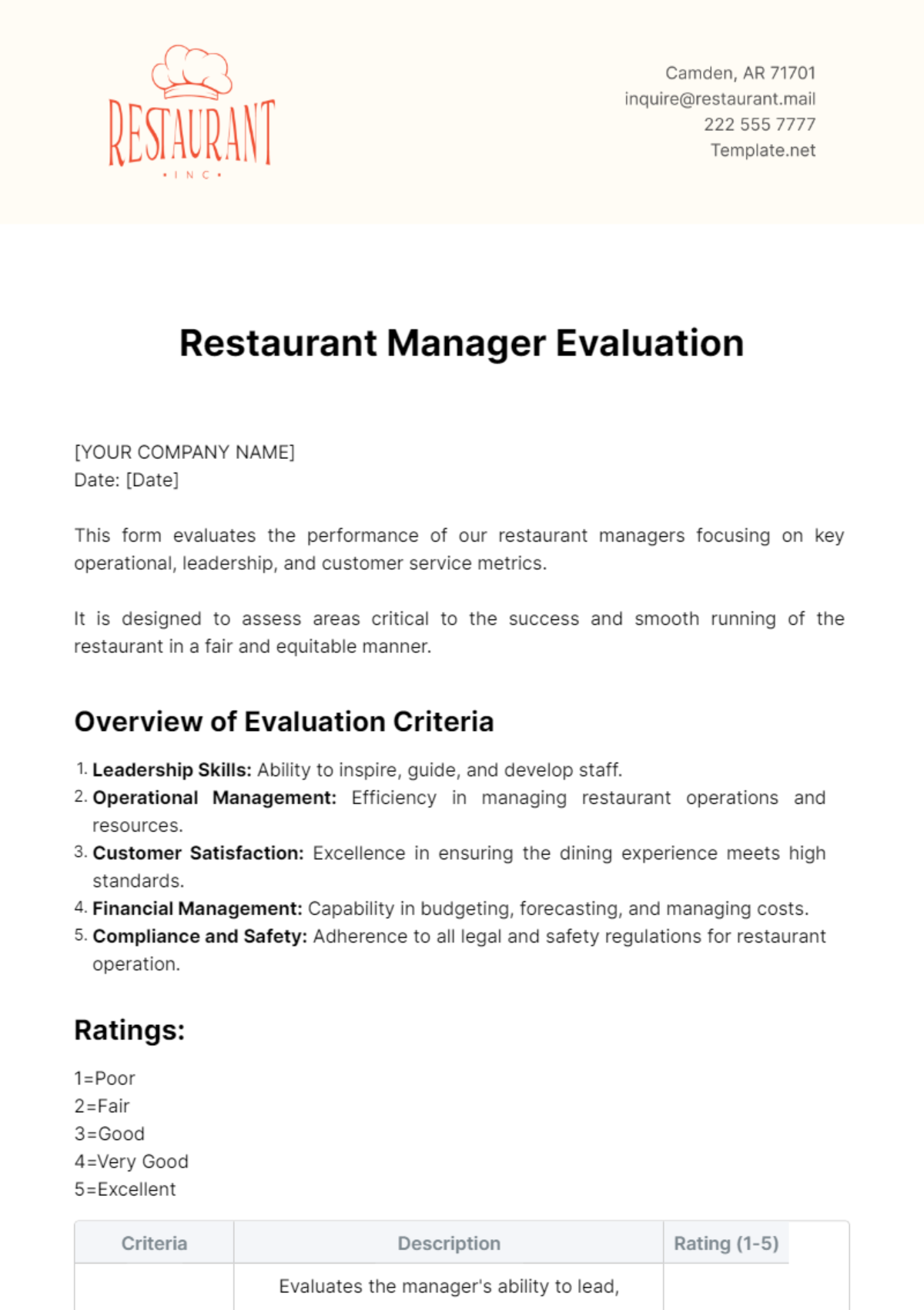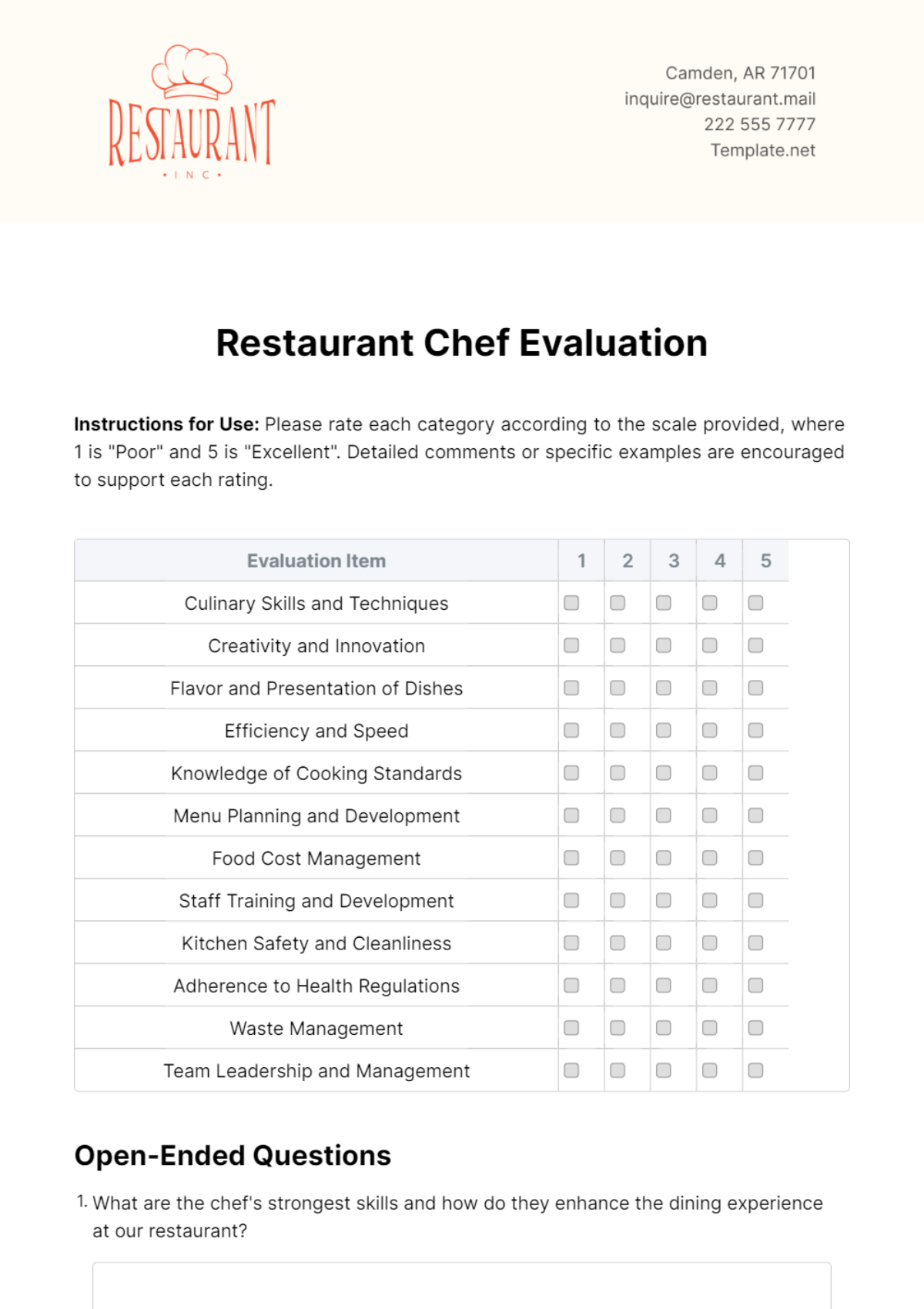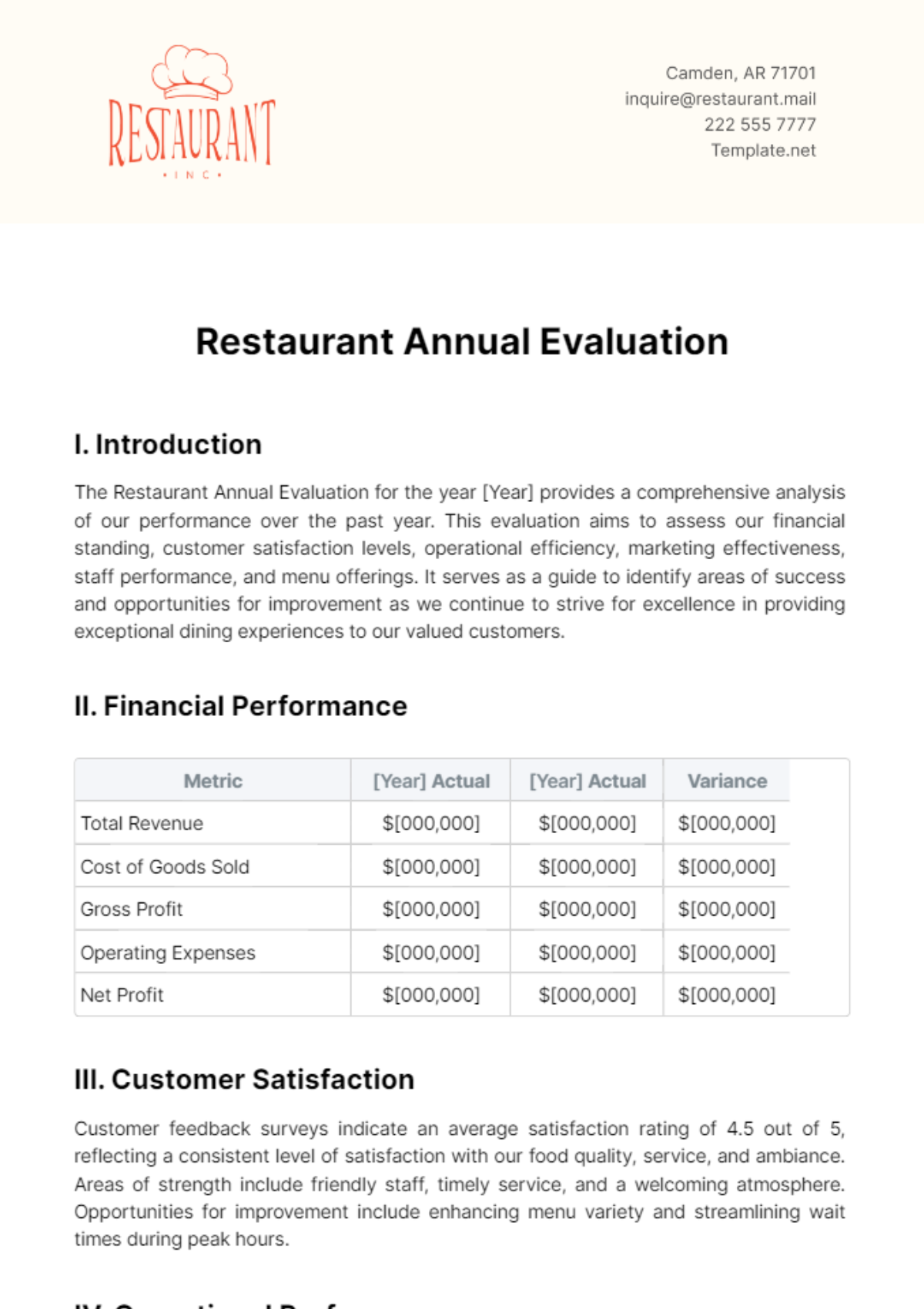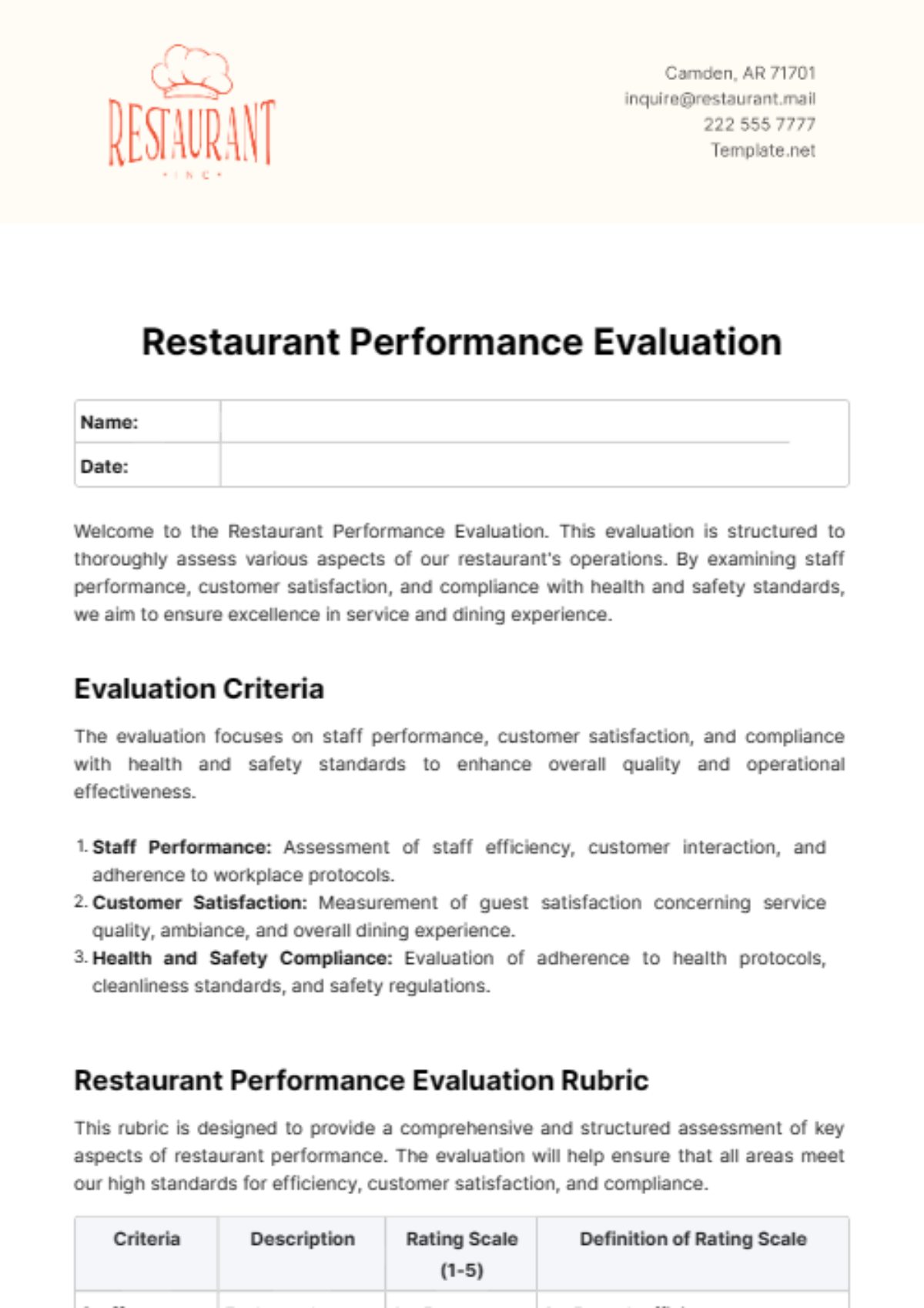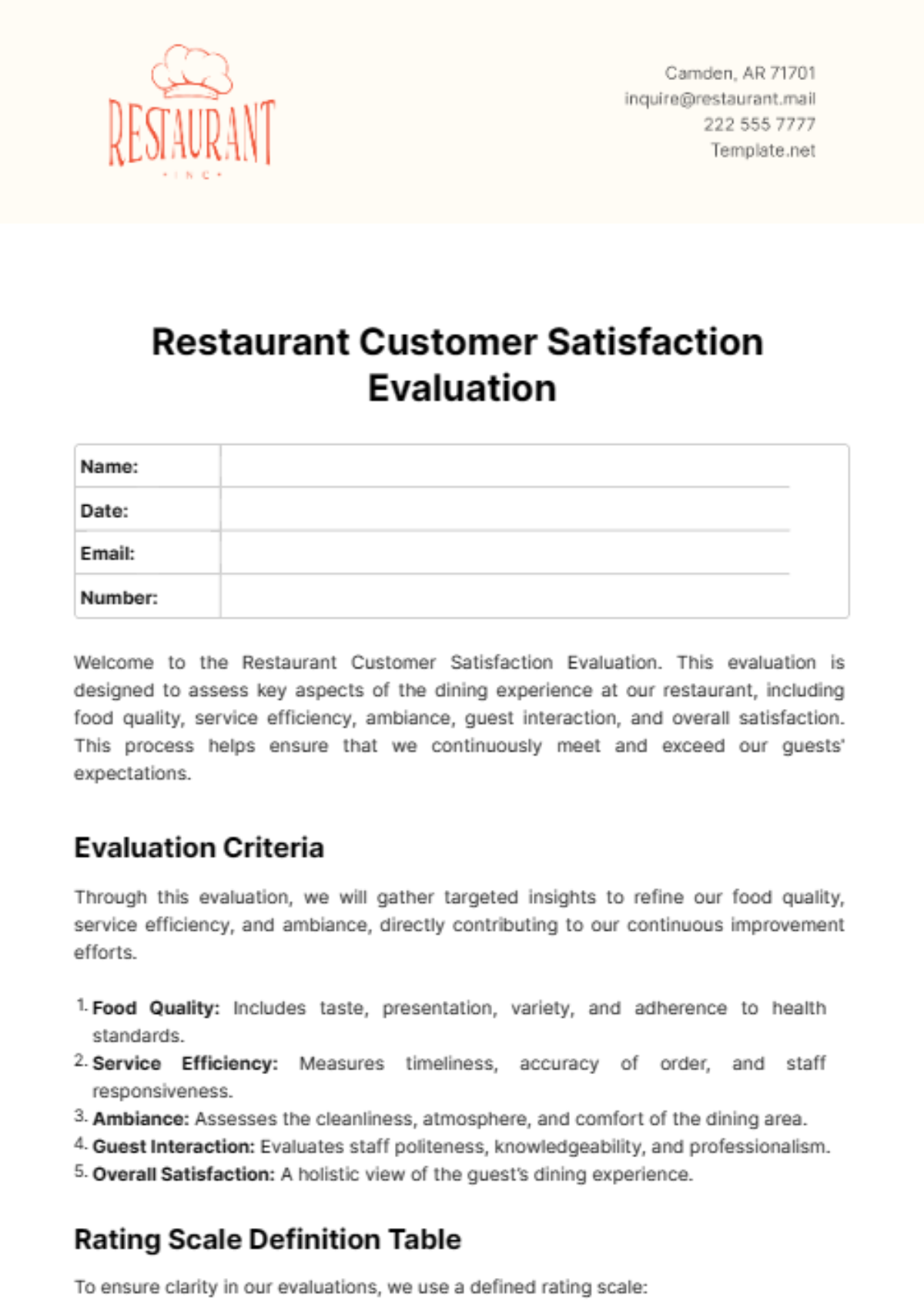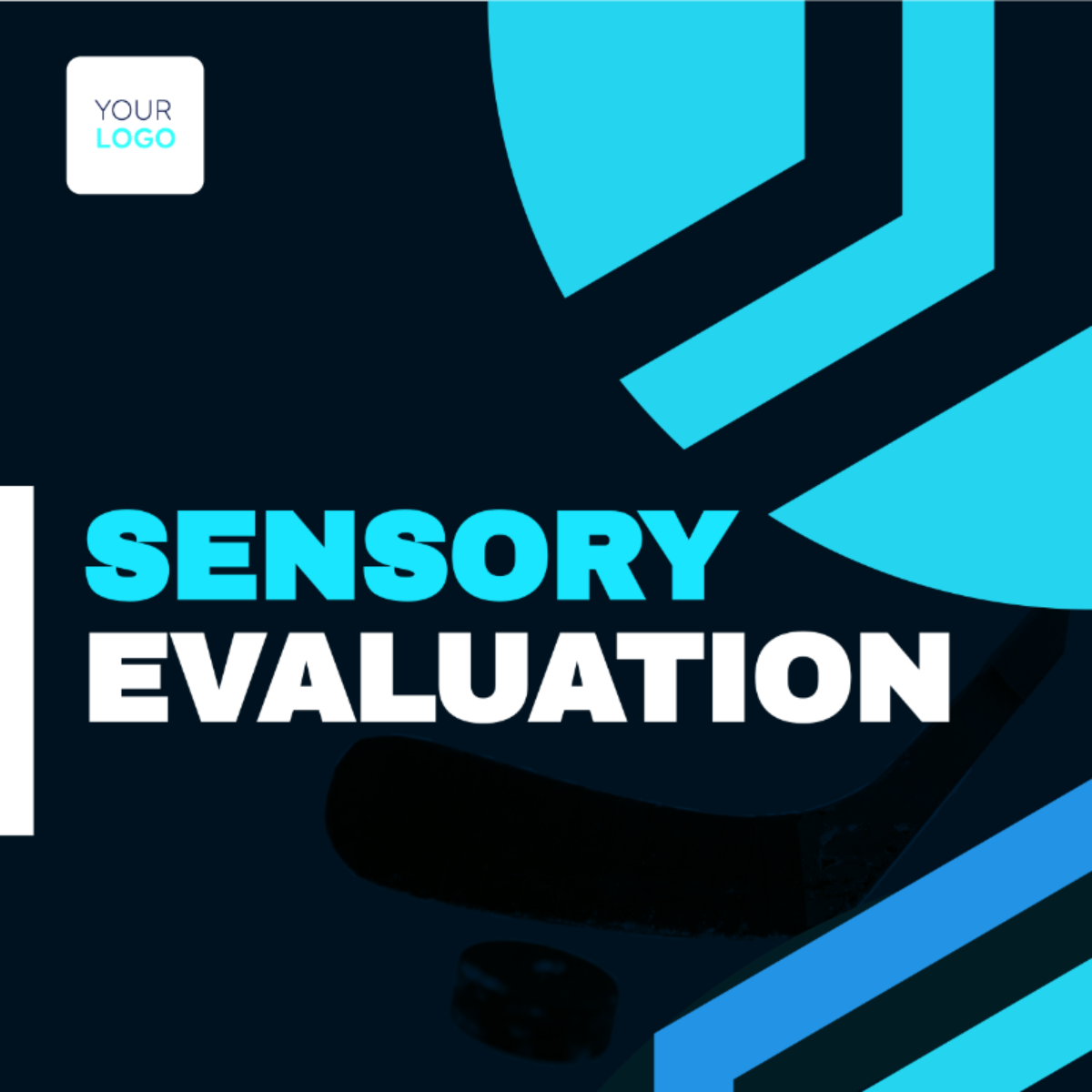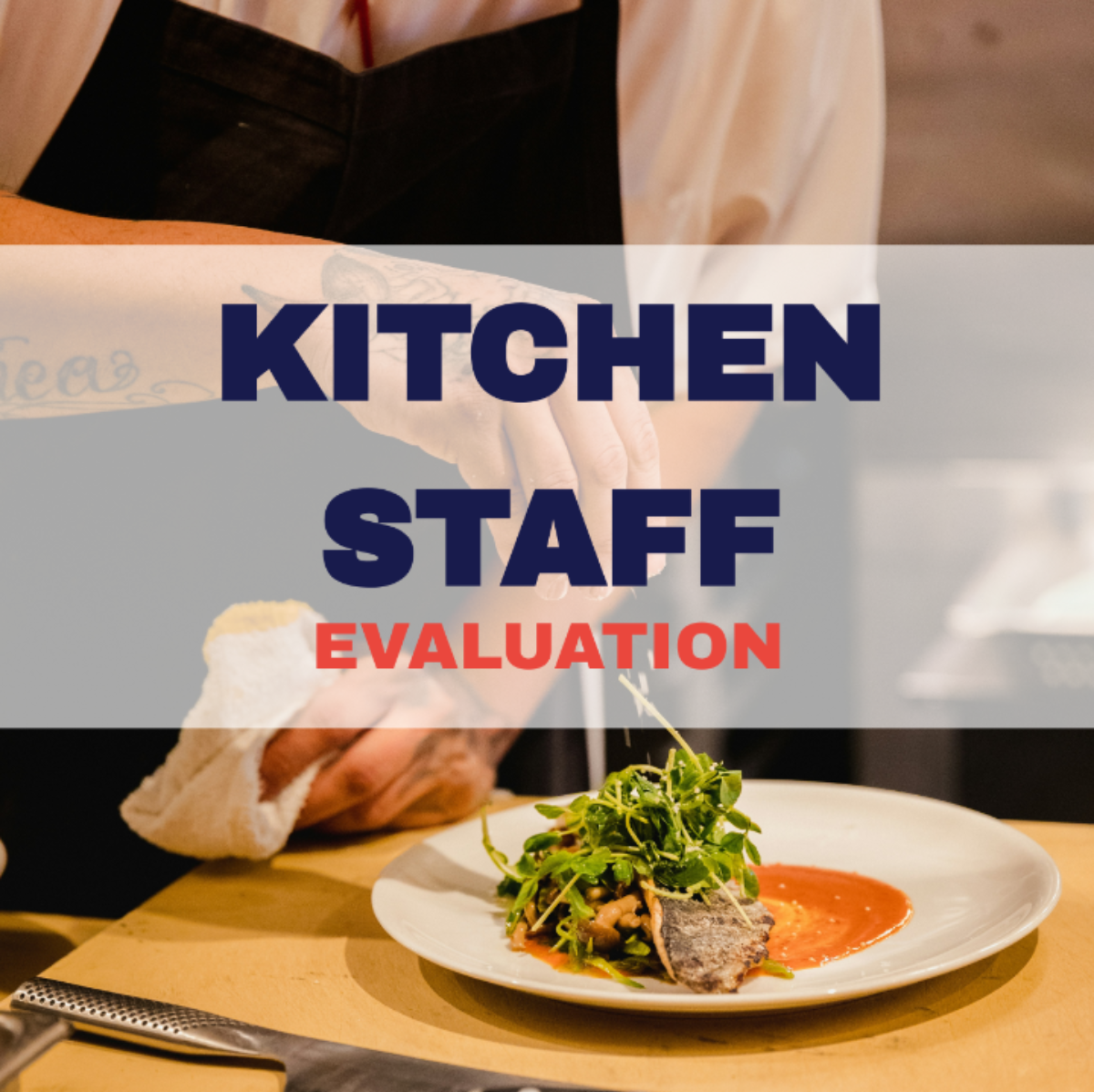Restaurant Training Evaluation
Name: | |
Date: |
Welcome to the Restaurant Training Evaluation. This evaluation assesses the effectiveness of our training programs across three crucial domains: Customer Service Skills, Compliance with Food Safety Protocols, and Operational Efficiency. This process ensures that all staff members are well-prepared to deliver exceptional service, uphold safety standards, and operate efficiently.
Evaluation Criteria
The evaluation will be primarily focused on three domains: Customer Service Skills, Compliance with Food Safety Protocols, and Operational Efficiency. Each category will assess specific skills and knowledge applied during daily operations.
Customer Service Skills: Evaluation of staff proficiency in customer service, focusing on interaction quality, problem-solving abilities, and overall customer engagement.
Compliance with Food Safety Protocols: Assessment of staff knowledge and adherence to food safety standards and protocols.
Operational Efficiency: Evaluation of how efficiently staff perform their operational duties, including time management and workflow optimization.
Rating Scale Definition Table
To provide clarity and consistency in the evaluation process, the following rating scale definitions are used to assess each criterion within the Restaurant Training Evaluation. This scale helps to standardize the measurement of performance across different areas, ensuring that all staff members are evaluated fairly and comprehensively.
Rating | Definition |
|---|---|
1 | Poor: Performance significantly below expectations with substantial areas for improvement. |
2 | Fair: Below expectations with multiple areas needing improvement. |
3 | Good: Meets basic expectations with satisfactory performance. |
4 | Very Good: Exceeds expectations with notable strengths shown. |
5 | Excellent: Outstanding performance, exemplifying ideal standards and exceptional service. |
This rating scale will be applied to each of the criteria listed in the evaluation sections, providing a clear and measurable way to assess how well staff are performing in their roles and how effectively they are applying their training in real-world scenarios. This structured approach ensures that each staff member receives constructive feedback that is both informative and actionable, facilitating ongoing professional development and improvement.
Section 1: Customer Service Skills
The ability to provide excellent customer service is pivotal in the hospitality industry. This section evaluates how well our staff use their training to interact with customers, manage service-related challenges, and enhance the overall customer experience through proactive engagement and effective communication.
Criteria | Description | Rating (1-5) | Comment |
|---|---|---|---|
Interpersonal Skills | Ability to communicate effectively with customers. | 4 | Staff demonstrated strong communication skills, effectively engaging with customers. |
Problem Solving | Capability to resolve customer issues promptly. | ||
Customer Engagement | Effectiveness in engaging customers to enhance their dining experience. | ||
Feedback Responsiveness | How well staff respond to and implement customer feedback. |
Section 2: Compliance with Food Safety Protocols
Ensuring food safety is a critical aspect of restaurant operations. This section measures the depth of staff knowledge and their adherence to food safety protocols, focusing on their ability to maintain high standards of cleanliness, handle food properly, and utilize safety equipment to prevent any health hazards.
Criteria | Description | Rating (1-5) | Comment |
|---|---|---|---|
Knowledge of Protocols | Understanding and application of food safety protocols. | 4 | Staff show excellent understanding of food safety protocols, applying them consistently. |
Sanitation Practices | Maintenance of cleanliness and hygiene standards. | ||
Handling and Storage | Proper handling and storage of food items. | ||
Safety Equipment Usage | Correct use of safety equipment and materials. |
Section 3: Operational Efficiency
Operational efficiency is essential for maintaining a smooth and profitable restaurant. This section assesses staff’s efficiency in task management, their ability to optimize workflow, and their effective use of resources, which are all crucial for maintaining a productive work environment and reducing operational costs.
Criteria | Description | Rating (1-5) | Comment |
|---|---|---|---|
Time Management | Efficiency in managing tasks within allocated times. | 4 | Staff effectively manage their time, ensuring tasks are completed within scheduled periods. |
Workflow Optimization | Ability to optimize tasks to improve workflow. | ||
Resource Utilization | Effective use of resources to maximize efficiency. | ||
Team Collaboration | Ability to work effectively within a team to enhance operational efficiency. |
Section 4: Additional Comments and Suggestions
We value your insights and suggestions which are vital for enhancing our training effectiveness. This section invites detailed feedback on our training processes and the practical application of learned skills, aiming to identify areas of strength and opportunities for improvement in our future training initiatives.
Aspect | Comments |
|---|---|
Overall Training Effectiveness | |
Areas for Improvement | |
Suggestions for Future Training | |
Additional Observations |
This detailed evaluation ensures our staff are not only well-trained but also proficient in applying their skills to enhance service quality, maintain safety, and improve operational efficiency. Your feedback is crucial for our ongoing development and success in delivering exceptional dining experiences.
